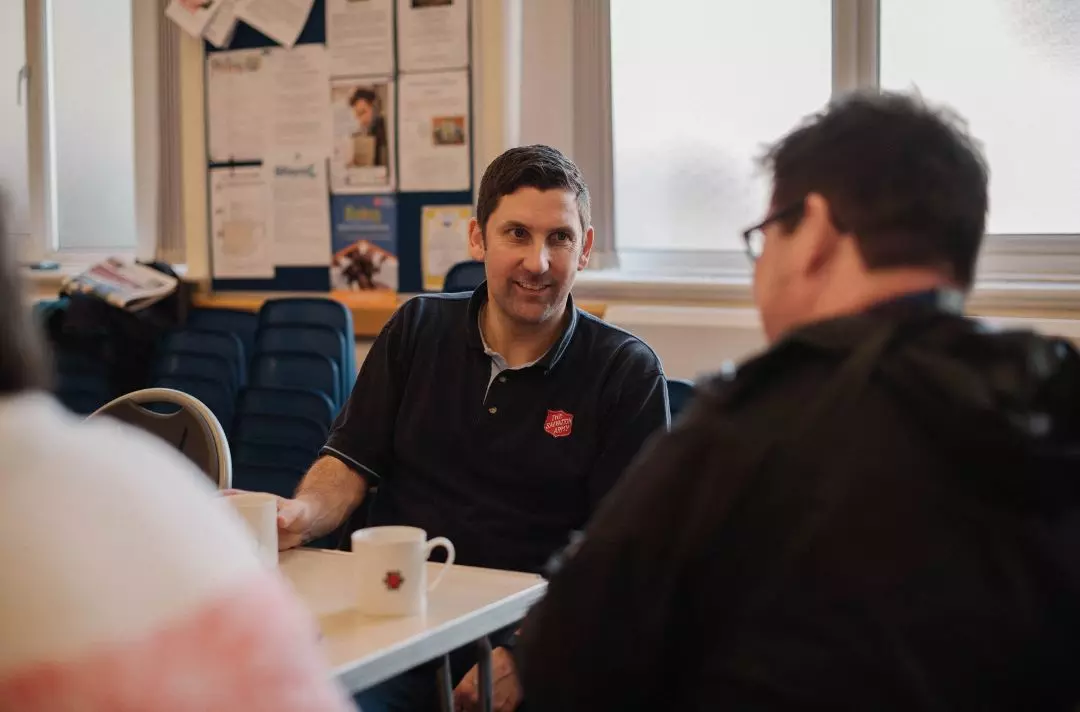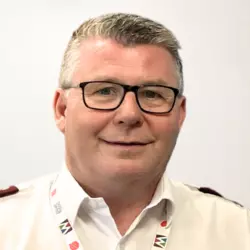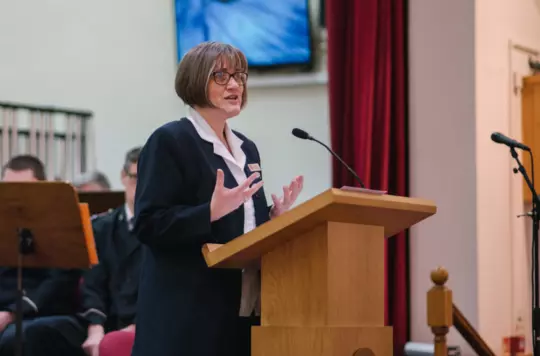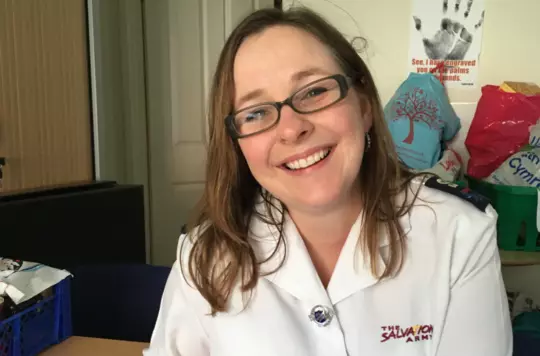9 October 2024
‘It’s about making a covenant with God’
Major Mark Sawyer

Territorial Candidates Director Major Mark Sawyer talks to Salvationist about officership, leadership and calling.
Is God still calling people to officership?
Absolutely! In my time at William Booth College, I’ve seen 4 sessions of cadets, and 40 cadets across those, as well as many territorial envoys. I celebrate that. I believe there is a real stirring of God’s Spirit right now. We just had a Design for Life weekend and there were 20 delegates.
There was a real sense of being intentional about hearing what God was saying and an urgency about doing what God was calling them to. Fourteen people have since asked for interviews with the Candidates Unit and the majority are young adults saying they feel called to be an officer, which is incredible.
Why have we introduced employed corps leaders?
Not everyone can fit into the model of officership, because of family circumstances and personal situations. Now, we have different pathways where people can fulfil their vocation in a way that suits their situation. I celebrate that too. We have many gifted people on fire for God in our Movement.
My prayer is that this opening up of pathways to ministry will enable people to see there is a vocation place in the Army for them. I led prayers recently at THQ and I thought: ‘20 years ago, a lot of these people’s roles would have been done by officers.’ It’s great we are enabling people to fulfil their vocations in different roles and ministries.
Does it matter which leadership pathway people go down?
What matters is that we help people discern the will of God so that they do what is right for them from him.
A number of territorial envoys, once they’ve had a taste of ministry, have gone on to commit to officership. For some, employed corps leadership could lead to the same thing.
Is there a hierarchy to these pathways?
In every organisation and in the Church, there needs to be leaders. There is synergy between all these pathways, as spiritual leadership gives people the opportunity to enable others to develop spiritually, to enrich our church community. It’s not about one being above the other: together, they are a glorious tapestry of ministry.
The highest calling is to be called by Jesus, which is for all believers. We all have that foundational calling as Christians. It’s about how you live that out and what your part in that tapestry is.
Does this new role diminish the value of officership?
None of these changes can or will change the value of officership. If someone feels called to leadership, I encourage them not to always go for what might seem the easiest option.
I wouldn’t want us to lose that sacrificial aspect to what God wants us to do with our lives, particularly with officership – it involves putting your trust in God, and the Army’s leaders, that you will be in the right place. In my experience, when there is an element of sacrifice in your giving and your walk with God, he honours that and blesses it.
Why is soldiership central to each leadership pathway?
Soldiership is a requirement all over the world for officership and envoyship. People make a promise to God through the Soldier’s Covenant and that promise is the springboard into ministry.
It’s about making a covenant to God. And our God is a covenant-keeping God.
How does the Officer’s Covenant relate to the Soldier’s Covenant?
The Officer’s Covenant and the Soldier’s Covenant are both making a covenant with God – and God’s covenant with us is trustworthy and unchanging. It is not a tiered covenant: there is one covenant that comes from God. It is then about developing your understanding of your covenanted relationship further in terms of how you live it out.
So it’s ultimately about being who you are called to be?
God is in the business of becoming. Romans 12:1 says: ‘Offer your bodies as a living sacrifice, holy and pleasing to God – this is your true and proper worship.’ If we all lived like that, we would all be in the right place at the right time, doing the right thing!
What should someone do if they feel called to leadership?
If God is calling you, take a step and test it. If it’s right, doors will open. If it’s not, doors will close and another door will open.
- To speak to someone from the Candidates Unit, email vocation@salvationarmy.org.uk.

Major Mark Sawyer
Territorial Candidates Director
Discover more

A lifelong commitment to Salvation Army leadership that's taken after deep thought and prayer.

A prayerful commitment to serve as a Salvation Army leader for a minimum of three years.

Opportunities may be advertised for employed corps leaders, pioneer leaders or chaplains.

Design for Life (DFL) is a weekend retreat at William Booth College to help you discover God's design for your life.